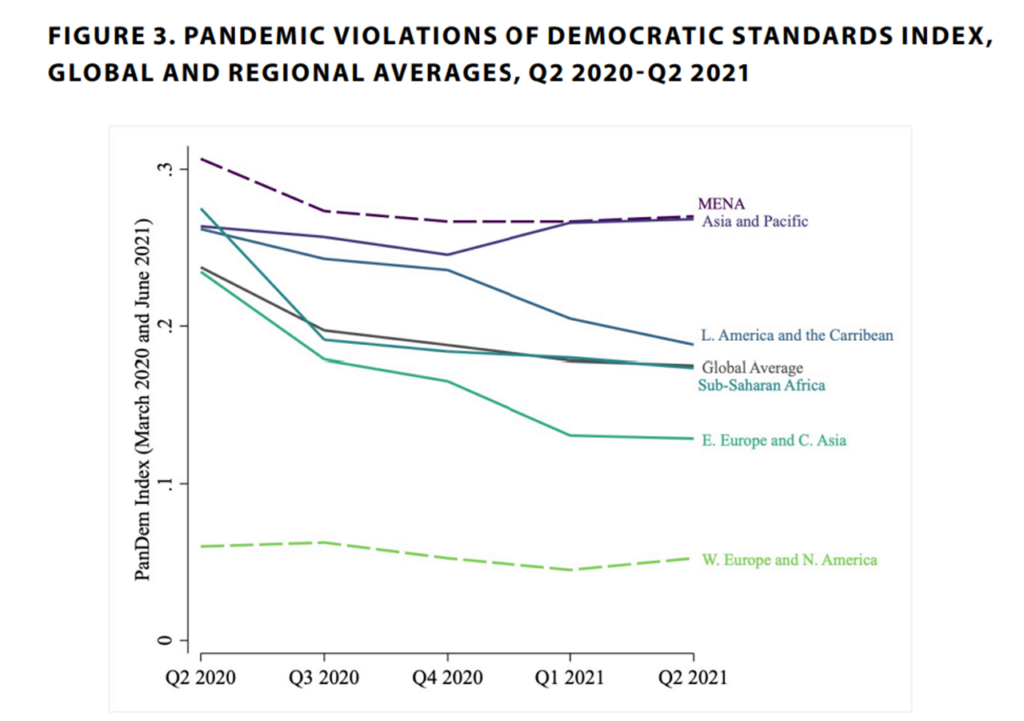 Democracy’s resilience was demonstrated during the COVID 19 pandemic, when democratic practices adapted in innovative ways, observers suggest. Some countries managed to hold elections in exceedingly difficult conditions, for instance by expanding absentee voting mechanisms or early voting procedures.
Democracy’s resilience was demonstrated during the COVID 19 pandemic, when democratic practices adapted in innovative ways, observers suggest. Some countries managed to hold elections in exceedingly difficult conditions, for instance by expanding absentee voting mechanisms or early voting procedures.
Even as the pandemic potentially wanes, the crisis will continue to endanger democratic governance and offer authoritarian actors opportunities to expand their power, Ryan Arick and Ariane Gottlieb write for the International Forum for Democratic Studies:
Authoritarian actors deployed propaganda, conspiracy theories, and dis- and malinformation campaigns to bolster their prestige, undercut criticism of their pandemic management, and discredit democracies’ health responses. The competition over ideas frequently played out amid the race to distribute medical supplies and vaccines. As the Forum’s research has shown, Moscow and Beijing have leveraged homegrown vaccines to cultivate positive perceptions worldwide and, at times, prioritize political objectives over public health concerns. These regimes have also disseminated fraudulent narratives about European- and U.S.-developed vaccines.
Democracy proponents everywhere must implement a stronger, coordinated response to blunt authoritarian political manipulation within their countries and across borders, they insist. RTWT
NEW BLOG POST: As we close out our #PandemicPloys newsletter, @Ryan_Arick and Ariane Gottlieb consider the lessons we’ve learned over the past two and a half years about the #COVID19 pandemic’s impact on democratic values. (1/)https://t.co/1Yrdc5vPN9
— Forum @ NED (@ThinkDemocracy) July 28, 2022







